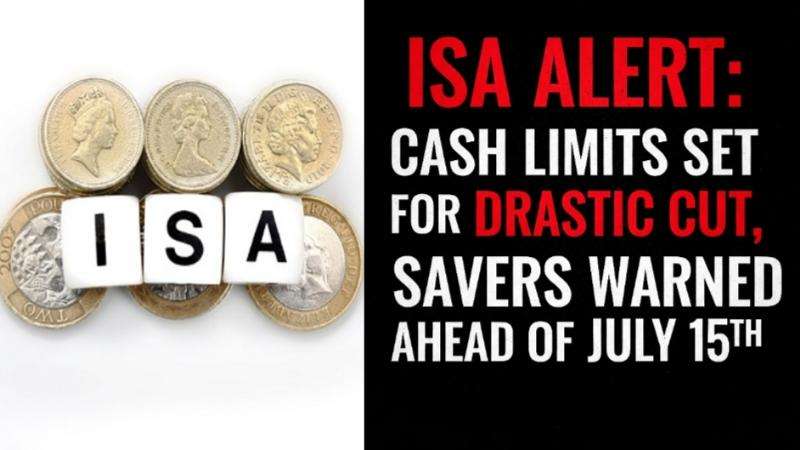Millions of UK savers are on high alert as strong reports indicate that Chancellor Rachel Reeves is poised to drastically reduce the annual tax-free allowance for Cash Individual Savings Accounts (ISAs) as early as next week. The widely anticipated move, expected to be unveiled during her Mansion House speech on July 15th, could see the current £20,000 annual limit for cash savings slashed to as low as £5,000, according to reports in the Financial Times and other outlets.
The current ISA system allows individuals to save or invest up to £20,000 each tax year across various ISA types, including Cash ISAs, Stocks and Shares ISAs, Innovative Finance ISAs, and Lifetime ISAs, all while enjoying tax-free returns. However, the proposed changes specifically target Cash ISAs, which have historically been the most popular choice for UK savers.
While the Treasury has yet to officially confirm the details, the speculation aligns with the government's broader ambition to encourage greater investment in stocks and shares over cash savings, with the aim of boosting the UK economy. Emma Reynolds, Economic Secretary to the Treasury, has previously voiced support for this shift, noting that consumers hold "hundreds of billions of pounds" in Cash ISAs and that the notion of cash as a good investment needs to be overturned.
Finance expert Martin Lewis has been vocal in his concerns regarding the potential cut. Taking to social media platform X, he stated, "If true, I think it's a mistake. I doubt it'll substantially nudge people to invest not save; said to be the aim... My suspicion is that for many who use cash ISAs, it will just result in many having to pay more tax on their savings." He clarified that any reduction is likely to impact future ISA limits, suggesting that funds already within Cash ISAs should not be immediately affected, though the exact start date for the new limit remains a "big question."
These rumours follow the Treasury's announcement in the recent March Budget that it was exploring "options for reforms" for the cash ISA system, aiming to strike a better balance between cash and equities.
Earlier in May, Chancellor Rachel Reeves had stated to the BBC, "I'm not going to reduce the limit of what people can put into an ISA, but I do want people to get better returns on their savings, whether that's in a pension or in their day-to-day savings." She added, "And at the moment, a lot of money is put into cash or bonds when it could be invested in equities, in stock markets, and earn a better return for people. But I absolutely want to preserve that £20,000 tax-free investment that people can make every year." While her previous comments reassured that the overall £20,000 ISA limit would remain, they left room for specific changes to the cash component. This appears to be the direction the government is now heading.
The potential reduction comes at a time when rising interest rates have put more savers at risk of paying tax on their savings interest. It's important to remember that individuals benefit from a Personal Savings Allowance (PSA) which dictates how much interest they can earn tax-free outside of an ISA. For basic-rate taxpayers, this allowance is £1,000 per tax year, while higher-rate taxpayers can earn up to £500. Additional rate taxpayers do not receive a PSA. Any interest earned above these thresholds is subject to income tax. If the cash ISA limit is indeed significantly cut, more savers could find themselves exceeding their PSA and facing a tax bill on their conventional savings accounts.
Industry experts, including AJ Bell, have suggested that while the government's aim to encourage investment is understandable, simply reducing the Cash ISA limit might not achieve the desired outcome. They argue for broader reforms, such as simplifying the ISA landscape and potentially removing stamp duty, to truly foster an investment culture in the UK. Data from 2021-22 showed an average of £4,330 of new money being put into a cash ISA, suggesting that a £5,000 limit, if implemented, would still allow a significant portion of current cash ISA users to continue saving tax-free within the new limit, albeit with less flexibility for larger sums.
The Mansion House speech on July 15th will be closely watched by millions as the final details of these potentially significant changes are expected to be revealed. Savers with substantial cash holdings may wish to consider their options before the new limits come.








.svg)
